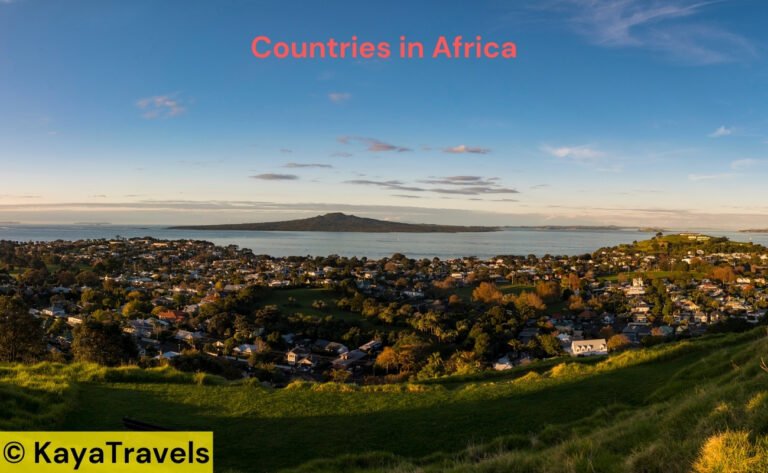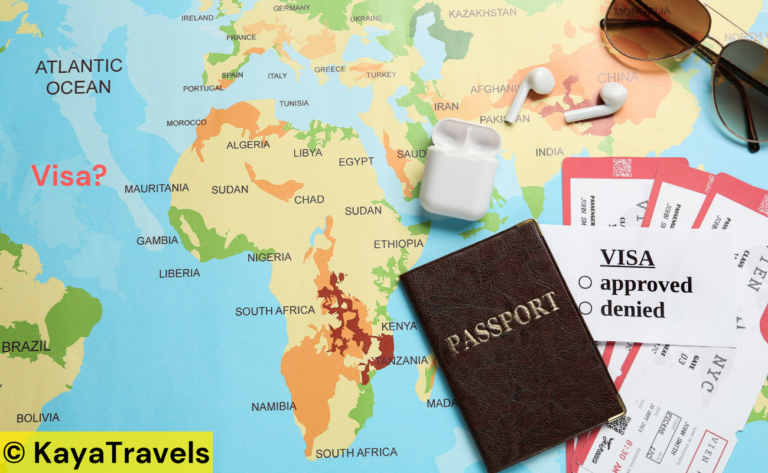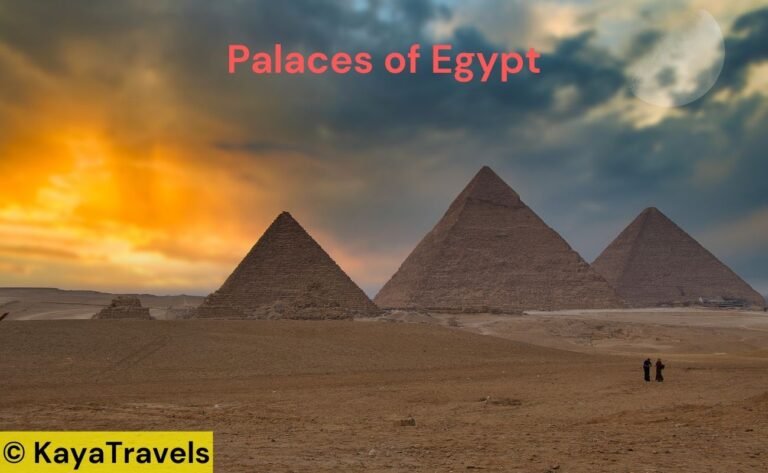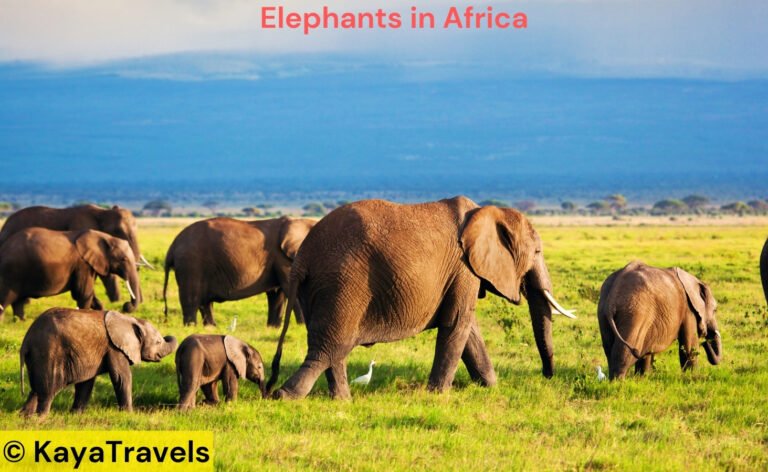Travelling to Africa offers a rich tapestry of cultures, landscapes, and experiences. Among the many attractions, safety is a key consideration for travellers exploring this vast continent.
Remarkably, several countries in Africa stand out as safe destinations, ensuring peace of mind during your adventures.
Botswana is often highlighted as one of Africa’s safest places to visit, with a stable democracy and an impressive Global Peace Index ranking. English is widely spoken, which simplifies communication and enhances the travel experience for those visiting its renowned wildlife havens.
Additionally, Mauritius is not only a tropical paradise but also among the safest, with its strong tourism industry a testament to the country’s thriving stability and hospitality.
As you consider your options, it’s beneficial to know that Africa is home to other safe havens as well. Commonly, travel advisories and the Global Peace Index are valuable resources to consult for the latest safety rankings.
They provide actionable insights to help you plan your African getaway with confidence.
Overview of Safest African Destinations
When planning your African journey, safety is paramount. Here’s an outline of the safest countries on the continent based on the latest data and rankings.
Safety Rankings and Indices
Global Peace Index: Annually, the Global Peace Index ranks nations globally on safety and security. In Africa, countries like Mauritius, Ghana, and Botswana often perform well, indicating lower levels of violence and crime.
List of African Countries Recognized for Safety:
- Botswana: Known for political stability and a modest crime rate.
- Namibia: Offers a sense of security for tourists with efficient law enforcement.
- Mauritius: High rank in the Global Peace Index, with a robust tourism industry.
- Ghana: Praised for its peaceful environment and hospitality.
Recognizing Safe Travel Destinations
To recognize safe travel destinations, consider:
- Crime Rate: Destinations like Mauritius and Rwanda have lower crime rates, including violent crimes.
- Economic Stability: A country like Namibia demonstrates economic stability, which often correlates with safety.
- Tourism Infrastructure: Countries such as South Africa and Morocco have well-developed tourism sectors, enhancing safety measures for travellers.
Looking at these aspects, along with the peace rankings, can help you pinpoint the safest countries in Africa for your travels.
Political and Social Stability Factors
When considering travel to Africa, it’s crucial to understand the region’s political climate and social dynamics as they are primary indicators of safety.
Evaluating Political Climate
In Africa, political stability is a factor that greatly influences safety. Some countries on the continent have a high Peace Index ranking, indicating a stable political environment.
For example, Mauritius is noted for its high ranking on the Global Peace Index, showcasing its commitment to maintaining a politically stable climate. To evaluate the political climate of a country:
- Check the current Peace Index: Countries with a high Peace Index score are typically more politically stable.
- Research recent elections: Peaceful elections often suggest political stability.
- Monitor news for political unrest: Avoid countries with ongoing reports of political instability or government turnover.
Understanding Social Dynamics
Social stability goes hand in hand with political peace. Areas with low reports of civil unrest are generally safer for travellers. Here’s how you can understand the social dynamics:
- Look at crime rates: Areas with lower crime rates are often indicative of a stable society.
- Read traveller reviews: Experiences of other travellers can shed light on the social atmosphere.
- Discover local customs: Being aware of and respecting local customs can help you avoid social tensions.
By considering both the political and social factors, you can make an informed decision on the safest places to travel to in Africa.
Traveler Safety and Health Concerns
When you’re planning to travel to Africa, two of the most important aspects to consider for a safe and enjoyable trip are staying healthy and avoiding crime.
Preventing Common Travel Illnesses
As a traveller, it’s crucial to be aware of health risks in Africa and how to prevent common sicknesses. Before you travel, consult with a healthcare provider to ensure you have the appropriate vaccinations and medications for disease prevention.
Diseases such as malaria are prevalent in some parts of Africa, and preventive measures, including antimalarial drugs, mosquito repellents, and nets, can be life-saving.
- Food and Water Safety: Always eat well-cooked food and drink bottled or purified water. Avoid raw vegetables and fruits unless you can peel them yourself.
- Personal Hygiene: Frequently wash your hands with soap and water, especially before eating.
- Avoid Animal Bites: Stay clear from wild animals and consider a rabies vaccine if you’ll be in contact with animals.
Avoiding Petty Theft and Crime
While many African countries are safe to visit, travel advisories do emphasize the importance of vigilance to avoid petty theft and crime, especially in tourist areas. Use common sense safety practices and be cautious with your belongings.
- Be Aware of Your Surroundings: Pay attention to your environment and keep a low profile.
- Secure Your Valuables: Use hotel safes, and don’t flash your belongings in public.
- Follow Local Guidance: Heed local advice and abide by any travel warnings.
Remember, by staying informed and prepared, you can significantly reduce your risk and have a memorable journey in Africa.
Cultural and Environmental Experiences
Africa offers a tapestry of cultural richness and diverse landscapes as expansive as the continent itself. Your experiences here will span from the deeply rooted traditions of local communities to the breathtaking vistas of the natural world.
Immersing in Local Cultures
In countries like Ghana and Senegal, you have the chance to engage directly with history and culture. In Ghana, the vibrant colours and history come alive at places like the Independence Arch in Accra.
Senegal celebrates its rich cultural tapestry through its music scene and warm hospitality. Participating in cultural festivals and staying in traditional huts can bring you closer to the warm heart of Africa’s diverse cultures.
- Enjoy live African music, which is a staple in Senegal.
- Experience the local lifestyle by staying in a Lobamba traditional hut in Eswatini (formerly Swaziland).
Exploring Majestic Landscapes
When it comes to natural beauty, Africa is unmatched. Botswana’s peaceful and stable environment makes it a perfect destination for wildlife enthusiasts.
The Okavango Delta and the Kalahari Desert can unfold in front of you with their unique ecosystems.
- Botswana – Experience safaris in national parks with a chance to spot diverse wildlife.
- Mauritius – A tropical paradise with beautiful beaches and lush landscapes inviting you to relax or explore.
Marvel at destinations like Table Mountain in South Africa or the grandeur of Victoria Falls on the border of Zambia and Zimbabwe.
These landscapes not only provide stunning scenery but are also home to a multitude of wildlife species, offering you a glimpse into the natural world that has shaped the continent’s history and cultures.
Top-Rated Safest Countries and Attractions
When planning your African adventure, safety is just as important as the sights you’ll see. The countries listed below are not only some of the safest in Africa, but they also offer unforgettable wildlife experiences and natural beauty.
Botswana – Okavango Delta and Chobe National Park
In Botswana, you’ll find peace of mind and nature unspoiled. The Okavango Delta is a unique wetland home to a diverse range of wildlife, from big cats to rare birds.
It’s a haven for safari enthusiasts. Chobe National Park is another gem known for its large herds of elephants. Both offer guided tours for a safe and educational experience.
- Attractions: Okavango Delta, Chobe National Park
- Wildlife: Elephants, Lions, Leopards
- Activities: Safari drives, river cruises
Insight: Botswana is renowned for its successful wildlife conservation programs.
Namibia – Etosha National Park and Windhoek
Namibia stands out for its stability and well-preserved natural attractions. Etosha National Park is among Africa’s best spots for wildlife viewing, especially around the natural waterholes.
Windhoek, the capital, blends African and European cultures, offering a safe and friendly urban experience.
- Attractions: Etosha National Park, Windhoek
- Wildlife: Rhinos, Giraffes, Zebras
- Activities: Game drives, cultural tours
Insight: Namibia’s conservation efforts have been successful in increasing the population of several endangered species.
Rwanda – Kigali and Mountain Gorillas
A testament to resilience, Rwanda is a beacon of safety and progress in Africa. Kigali, the capital, is clean and orderly, reflecting the country’s optimistic spirit.
The opportunity to see mountain gorillas in their natural habitat is a profound experience that draws visitors from around the world.
- Attractions: Volcanoes National Park, Kigali Genocide Memorial
- Wildlife: Mountain gorillas, Golden monkeys
- Activities: Gorilla trekking, city tours
Insight: Rwanda’s commitment to conservation has helped protect and increase its mountain gorilla population.
Custom Image Title: “Explore Safely: Africa’s Top Wildlife Havens”
Do you have questions on how to plan your trip to Africa’s safest countries and their attractions? Our guide provides key information to ensure a memorable and secure journey.
Travel Planning and Precautions
When planning a trip to Africa for adventure or to tick off bucket list destinations, remember that safety and timing are key.
Choosing the Right Time to Visit
In Africa, timing can greatly impact your travel experience. Dry seasons typically offer more predictable weather patterns, which is crucial for both safety and maximizing your adventure.
The dry season usually spans from May to October in most African countries, which are deemed safe with lower crime rates. Here’s a quick guide:
- South Africa: May – September
- Kenya: June – October
- Botswana: April – October
By travelling during these months, you’re likely to enjoy your trip without the interruption of heavy rains or extreme conditions.
Ensuring Adequate Travel Insurance
It’s wise to secure travel insurance before embarking on your journey. Insurance can protect you against unforeseen events such as trip cancellations, medical emergencies, or lost baggage. Keep the following in mind:
- Coverage: Make sure your policy covers travel disruptions and medical aid.
- Activity Coverage: If your trip involves adventure sports, check for specific coverage.
- Valuables: If carrying expensive gear, consider additional coverage for loss or theft.
Sticking with reputable insurers and reading the fine print can save you a lot of headaches.
TRAVEL TIP: Always carry both digital and physical copies of your insurance policy when travelling.






